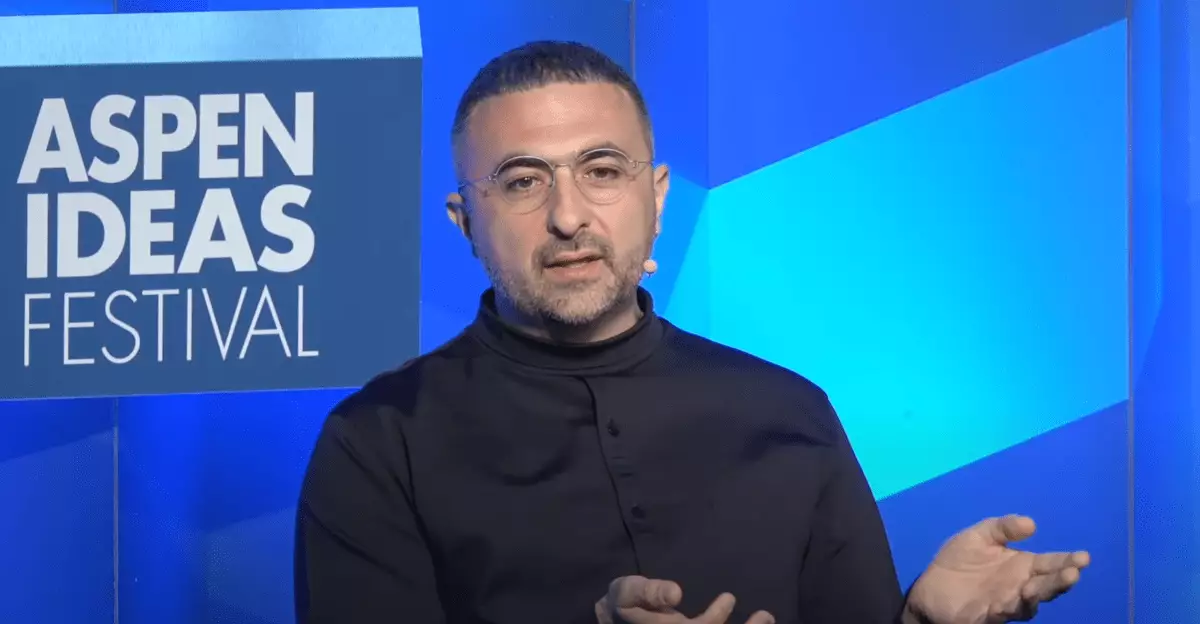The tech world is no stranger to shifting alliances and fierce competition, and recent developments involving Microsoft and OpenAI underscore just how quickly these dynamics can change. Salesforce CEO Marc Benioff’s comments during a CNBC interview at the Davos summit aptly captured this unfolding drama. As Microsoft’s longstanding relationship with OpenAI experiences a seismic shift, one must analyze the implications of these changes for the AI industry and its key players.
For several years, Microsoft enjoyed an exclusive partnership with OpenAI, which it bolstered with a significant $1 billion investment in 2019. This association appeared beneficial for both entities; however, recent revelations indicate that the synergy may be unraveling. OpenAI has announced its decision to collaborate with SoftBank and Oracle on an extensive $500 billion data center initiative, dubbed “Stargate.” This project marks a pivotal departure from Microsoft’s cloud-only strategy and signals an intention for OpenAI to diversify its partnerships.
Benioff’s laughter during the interview speaks volumes about the changing tides in the AI ecosystem. His assertion that OpenAI’s diversification is not only strategic but imperative to its growth points to a growing recognition that Microsoft may prioritize its own AI endeavors over its relationship with OpenAI. With Microsoft developing its own AI technology and hiring key personnel such as Mustafa Suleyman, the implications of this shift are profound.
OpenAI’s transition away from Microsoft highlights the company’s ambition to establish itself as a technological heavyweight, potentially rivaling its former partner. The implications are vast not only for the companies involved but for the future of AI innovation. By exploring other partnerships, OpenAI appears to be acknowledging that exclusive relationships can stifle growth, especially in a field as rapidly evolving as artificial intelligence.
Moreover, with OpenAI’s ambitions for artificial general intelligence (AGI) at play, the company’s perceived need for additional data center capacity is likely critical. Reports indicate that OpenAI has faced limitations due to decreased computing power, culminating in product delays. Benioff’s predictions regarding OpenAI moving beyond Microsoft suggest a battle for resources in a landscape where computational power is paramount.
Internal Discontent and Rivalries
Tension between OpenAI and Microsoft is not a recent development; it has reportedly been simmering since mid-2023. The animosity is apparent, with employees from both firms allegedly expressing disdain for one another. Such friction could have serious ramifications, disrupting project collaborations that require seamless teamwork. The fact that Sam Altman, OpenAI’s CEO, and Mustafa Suleyman, head of Microsoft AI, have not developed a collaborative rapport further complicates the relationship.
As organizations navigate the competitive landscape of artificial intelligence, fostering a cohesive culture can be as crucial as technological prowess. The discord between the two firms raises questions about collaborative potential and innovation when personal dynamics and corporate strategies clash.
While Benioff might revel in the current estrangement between Microsoft and OpenAI, it is essential to recognize that this rivalry could morph into opportunities for both entities. Microsoft, for instance, continues to explore artificial intelligence through its own large language model, MAI-1, and recently launched a new AI division led by Jay Parikh. Additionally, the separation opens avenues for new partnerships for both companies in the pursuit of cutting-edge AI solutions.
As the industry witnesses these shifts, it is crucial for stakeholders to assess the broader implications of this evolving landscape. The future of AI will not only rely on technological advancements but also on collaborative frameworks and cultural integration among firms.
The divergence between OpenAI and Microsoft is emblematic of the volatile nature of the technology sector. As both parties explore new alliances and technological frontiers, observers will closely watch to see how this schism will shape the future trajectory of AI innovation. A recalibration of partnerships may very well influence the industry for years to come, as the quest for supremacy in artificial intelligence continues unabated.

